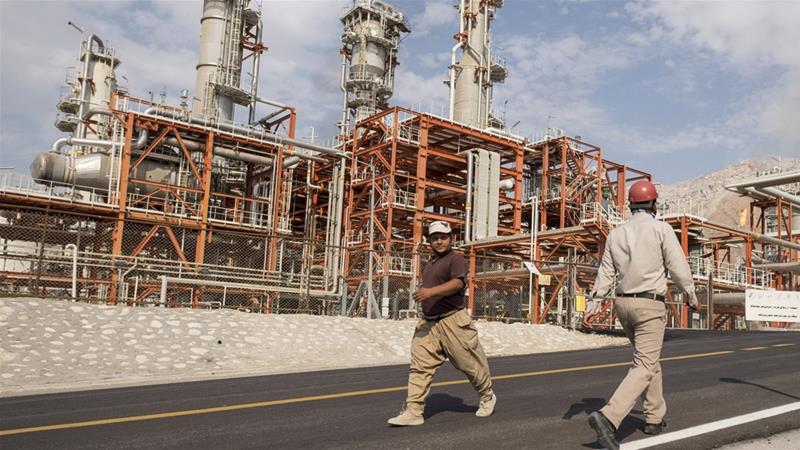In an extraordinary series of tweets, President Donald Trump on Friday explained his rationale for calling off a retaliatory military strike against Iran over the downing of a U.S. drone.
He said the military was “ cocked and loaded to retaliate last night (Thursday) on three different sites” in Iran but he had to pull the brake 10 minutes from time when he was told that as many as 150 lives might be lost in the process.
He tweeted: “10 minutes before the strike I stopped it, not proportionate to shooting down an unmanned drone”.
The late reversal was first reported by the New York Times on Thursday night. The newspaper said the operation was under way “in its early stages” when Trump stood the US military down.
“I am in no hurry,” Mr Trump said yesterday. “Our Military is rebuilt, new, and ready to go, by far the best in the world.
“….On Monday they shot down an unmanned drone flying in International Waters. We were cocked & loaded to retaliate last night on 3 different sights when I asked, how many will die. 150 people, sir, was the answer from a General. 10 minutes before the strike I stopped it, not….
“….proportionate to shooting down an unmanned drone. I am in no hurry, our Military is rebuilt, new, and ready to go, by far the best in the world. Sanctions are biting & more added last night. Iran can NEVER have Nuclear Weapons, not against the USA, and not against the WORLD!
He claimed that the sanctions he imposed on Tehran after withdrawing from the Iran nuclear agreement have “weakened” Iran.
In follow up tweets he said:“President Obama made a desperate and terrible deal with Iran – Gave them 150 Billion Dollars plus I.8 Billion Dollars in CASH! Iran was in big trouble and he bailed them out. Gave them a free path to Nuclear Weapons, and SOON. Instead of saying thank you, Iran yelled…..”
….Death to America. I terminated deal, which was not even ratified by Congress, and imposed strong sanctions. They are a much-weakened nation today than at the beginning of my Presidency, when they were causing major problems throughout the Middle East. Now they are Bust!….
Iran downed a U.S. military drone by fire early Thursday, an attack Trump erroneously said happened “Monday.” Iran claimed the drone was over its territory; the Pentagon says it was flying over international waters in the Strait of Hormuz.
“Iranian reports that the aircraft was over Iran are false,” Bill Urban, a spokesman for U.S. Central Command, said at a press briefing. “This was an unprovoked attack on a U.S. surveillance asset in international airspace.”
Last week two oil tankers — the Japanese-owned Kokuka Courageous and the Norwegian-owned Front Altair — were damaged in attacks off the Iranian coast, attacks that the U.S. has also blamed on Iran.
The downing of the drone sparked fears of a possible new military conflict in the Middle East, despite Trump’s stated aversion to dragging the United States into another war.
